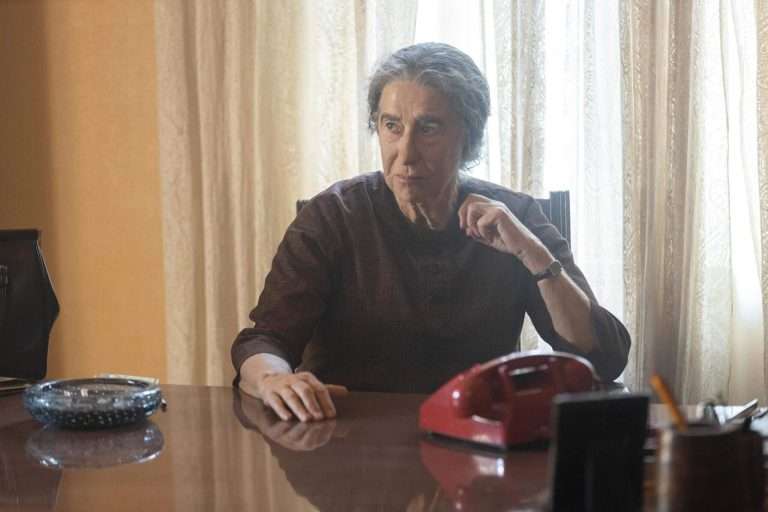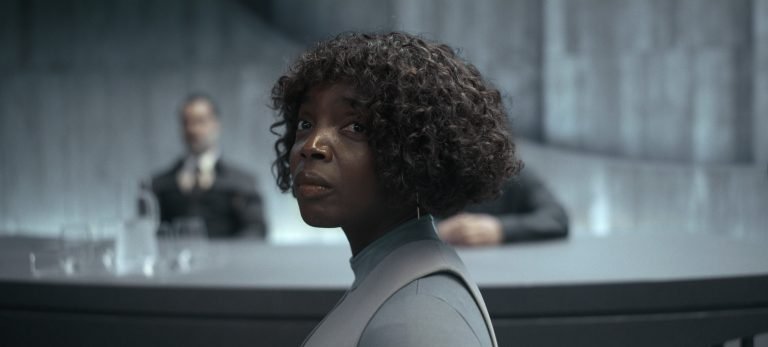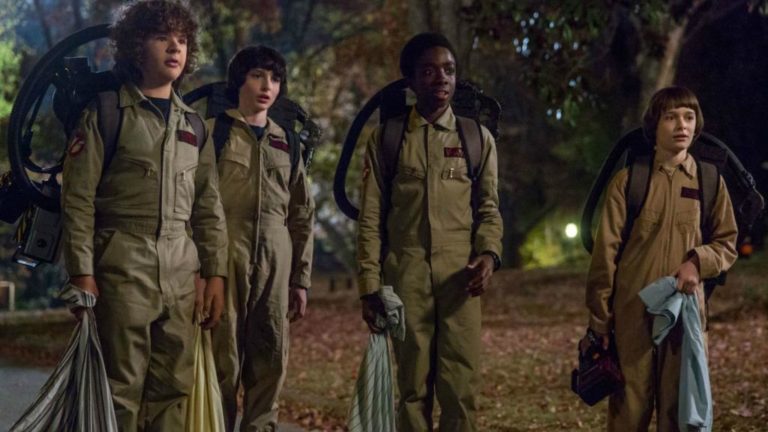Jubilee (Season 1, Part II) ‘Prime Video’ Review: A love letter to the fledgling beginnings of the Hindi film industry, “Jubilee” sheds light on the relationship and personalities of real-life figures such as Himanshu Rai and Devika Rani with the concurrent rise of star Ashok Kumar. While tracing the rise of a superstar, the show also presents a conventional underdog that runs in side contrast, as the inner workings of the industry remain subject to foreign influences.
Just like “Rocket Boys,” “Jubilee” too attempts to tell a story of a newly born nation by zooming in on one of its defining institutions – one that we now know as Bollywood. The production and art design, however, feel much more lived in and intricate here, reflecting a personality of their own. It makes for a fascinating ‘what-if’ story for a film historian who has established himself as being both articulative and formulative in the past.
The second part of the show notably expands upon the film world and remains more dedicated to its heightened world. Sidhant Gupta as Jay Khanna establishes himself as a talent with unseen charisma and ease, while Prosenjit Chatterjee gives the show some of its best dramatic bits even with fewer scenes in the second part.
Vikramaditya Motwane’s retelling doesn’t mock or satirize any of the stalwarts of the bygone era, but actively carves out character arcs that are infused with melancholy and tragedy. Journalists play a key role in reinforcing as well as reinstating these tragedies. While the central line of conflict in the story is carried forward through a McGuffin handed over by a journalist, at another point, the review for Jay Khanna’s first film establishes his place in the industry as a force to be reckoned with.
The review declares that whatever the debutant actor-director lacks in his technique, “he more than covers up for with sincerity.” There’s both aplomb technique as well as sincerity involved behind the camera in “Jubilee,” but the cracks become visible once the contrived tones and conveniences in the script begin to seep through.
In one of the show’s most stunning scenes – of which there are plenty – we watch Jay and Niloufer Qureshi out in drizzling rain with an umbrella in the middle of the night. An homage to Raj Kapoor’s extraordinary 1955 classic, “Shree 420”, the scene comes at a key point in Jay’s struggle against finding out his own purpose as an artist – whether to settle for mainstreaming of art manifested by the commercialization of his talent or to preserve his artistic ambitions for something more worthwhile. It’s the same dilemma that the newly born nation of ours at the time was going through.
More interestingly, one of the prominent topics in the Raj Kapoor-starrer film remains ‘class’ – a factor that also plays a role in reinforcing the difference between Binod Das and Jay. The shots of cramped roads and footpaths remained prevalent throughout the 1955 film – ones that posed in front of a grand, spacious mansion which only further conveyed the vast inequality between the two classes of society. While Raj’s interactions in the film brought about themes of corruption and nationalism, the journey of Jay in “Jubilee” acts as a reminder of how the commercialized wheels of the Hindi film industry weren’t devoid of inequality even then. Hence, it’s this clever acknowledgment of the darker side of the era (and showbiz in general) that keeps “Jubilee” from turning into a silver-coated nostalgia-fest.
There’s a point in one of the latter episodes in which the same characters – Jay and Niloufer – stand out in the rain, although this time without an umbrella. They later sit on the road, facing each other in the pouring rain. Even the bright amber lights from the Roy Talkies gate they sit in front of couldn’t make up for their blues. Somewhere between the two dialectical scenes, the show establishes its core theme, which only makes the eventual conclusion work so well. That’s what I meant when I said that Motwane’s show excels at both technique and sincerity.
However, what the 10-episode series achieves through its pristine filmmaking is, to a certain extent, undermined by the writing. In a world where everyone seems to be looking to bend rules and gain a measure of the upper hand or influence, it’s rather bewildering how crucial character motivations seem to be forgotten. Out of these, the subplot of Jamshed Khan merely works as a bracketing element – one that’s set up right from the first episode as we forget to see it transform into something concrete, which only happens in the very last.
There are time jumps and jarring choices that try to showcase the characters aging, yet there’s seldom any understanding or influence of studios outside of Roy and Khanna talkies. Direct references are made to real-life figures such as K. Asif and Dilip Kumar, but the choice of restoring to such empty nods, albeit fun and cheeky, feels in contrast with the rest of the show’s ethos.
The side development of showing Soviet and American influences over the Hindi film industry serves too far-fetched of narrative convenience, on top of posing as an interesting play of power dynamics. That’s what the show is about, after all, the curious play between the perceiver and the perceived. It’s what cinema caters to and where it derives its power from the concept of make-believe.
The same is best reinforced at the start of episode 7, titled “Rajmahal,” where Madan Kumar draws key inspiration from his personal life tragedy to carve out a story with completely different morals and sensibilities. Cinema offers that kind of manipulation. As the audience, we watch the actual tragedy play out in front, which only makes the contrast with the narration in the background even more effective. But how often is that the case?
There is a moment between two characters toward the end of the show where one of them is in the middle of his monologue about how people betray each other and how one should always be more mindful of his own lot. Right then, he’s heedlessly interrupted by one of the main characters, now an established star, about his troubled love life and the dilemma he’s in. The asynchrony is acknowledged by the other character, who points out how he’s throwing the entire conversation off to a separate tangent.
It’s the same dilemma that informs the lack of understanding of what the audience wants and what the mainstream studios hurdled in power-grabbing think they want. With that, “Jubilee” makes a case for the triviality of chasing stardom at the cost of destroying something – especially if that’s coming at the cost of one’s own artistic voice. It lures you in through its glorious world that establishes a sense of place yet leaves it in shambles.
A turbulence born out of communal anger from the start of the show reverberates through its overarching story, leaving disastrous consequences for its characters to deal with. After all, one can only keep up the facade of make-believe until reality meets the same tragic fate as it often does in films.






